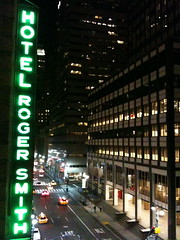 Awhile ago, I wrote why I am an obsessive compulsive Facebook user. Truthfully, Facebook’s “obsessive compulsive” reach didn’t grab me until recent events that I blogged about earlier this week. As I mentioned in that post, I started a blog to address a problem that seems to be plaguing my high school, an issue that I was alerted to through Facebook. For students without the financial means or know-how to bring an issue to light within a community, the best avenue to promote change within a high school student body is currently Facebook.
Awhile ago, I wrote why I am an obsessive compulsive Facebook user. Truthfully, Facebook’s “obsessive compulsive” reach didn’t grab me until recent events that I blogged about earlier this week. As I mentioned in that post, I started a blog to address a problem that seems to be plaguing my high school, an issue that I was alerted to through Facebook. For students without the financial means or know-how to bring an issue to light within a community, the best avenue to promote change within a high school student body is currently Facebook.
I realized that the blog I created did shift gears away from Facebook, but it ended up empowering the students, many who felt helpless. I noticed that other students were continuing to post on the Facebook group’s wall, but not so much as they were on this new site, a site that had a much further reach.
But then I realized something else. When we consider the Facebook as a tool to socially network, we don’t realize that the Facebook can be used as a catalyst for change. The students in the Facebook group are not simply students who want to hang out for a nonsensical reason (like so many other groups I’ve joined). This group was created because the students and alumni felt that they needed to unite on a common front to drive change.
I began to realize that Facebook is not only about socially networking, or even for marketing. Facebook is a social network that enables people from all corners of the globe to connect to make a real difference. That’s why we see over 500 groups to bring awareness to the issue in Darfur. That’s why we see over 500 groups to support the people and communities who are still suffering from the aftermath of Hurricane Katrina. These groups promote awareness and encourage community-wide projects, rallies, and charity drives. In my case, the Facebook group I joined was really geotargeted to people who were directly impacted by a small parochial high school, and on that group’s Facebook wall, readers could feel the passion of these students. My desire to see constant updates drove me to check the site regularly (and surprisingly, after all my raving, to use the Facebook status updater more often than Twitter). And that’s just how Facebook impacted me alone.
Think about how Facebook can be used to reach out to not just a small demographic but to a world of students who are in a position to become leaders of their communities. Facebook can, without much effort, make some of these students community leaders who really promote long lasting change and ultimately make a huge difference in society.


![Confessions and Reflections of a [Former] Digg Addict](http://www.techipedia.com/wp-content/uploads/2008/05/digg-logo.jpg)

